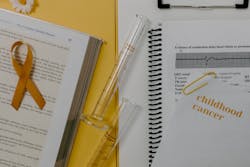The World Health Organization (WHO) and St. Jude Children’s Research Hospital announced plans to establish a platform that will increase access to childhood cancer medicines around the world.
The Global Platform for Access to Childhood Cancer Medicines, the first of its kind, will provide an uninterrupted supply of quality-assured childhood cancer medicines to low- and middle-income countries, the WHO said.
St. Jude is making a six-year, $200 million investment to launch the platform, which will provide medicines at no cost to countries participating in the pilot phase. The WHO said this is the largest financial commitment for a global effort in childhood cancer medicines to date.
“Close to nine in ten children with cancer live in low- and middle-income countries,” said Tedros Adhanom Ghebreyesus, PhD, WHO Director-General. “Survival in these countries is less than 30%, compared with 80% in high-income countries. This new platform, which builds on the success of the Global Initiative for Childhood Cancer launched with St. Jude in 2018, will help redress this unacceptable imbalance and give hope to many thousands of parents faced with the devastating reality of a child with cancer.”
Each year, an estimated 400,000 children worldwide develop cancer. The majority of children living in low- and middle-income countries are unable to consistently obtain or afford cancer medicines. As a result, nearly 100,000 children die each year.
The new platform aims to provide safe and effective cancer medicines to approximately 120,000 children between 2022 and 2027, with the expectation to scale up in future years, the WHO said.
During an initial two-year pilot phase, medicines will be purchased and distributed to 12 countries through a process involving governments, cancer centers and nongovernmental organizations already active in providing cancer care. Discussions are already ongoing with governments to determine the countries which will participate in this pilot phase. By the end of 2027, it is expected that 50 countries will receive childhood cancer medicines through the platform.

